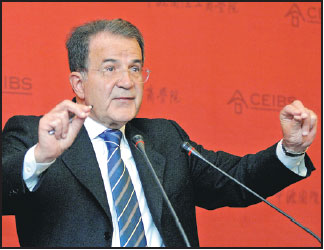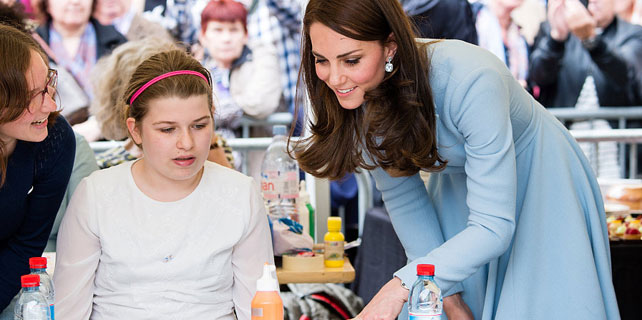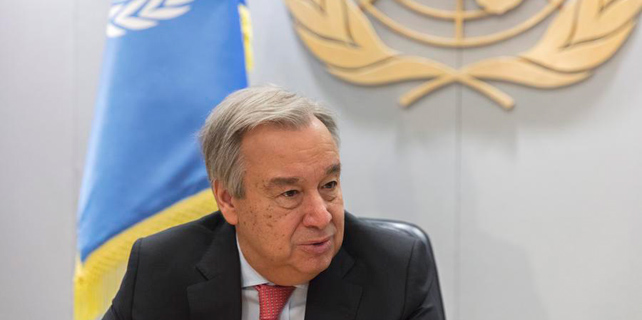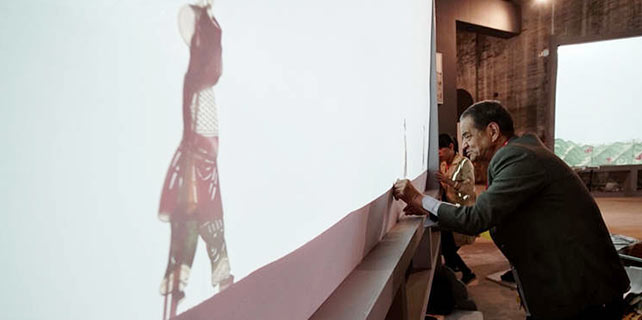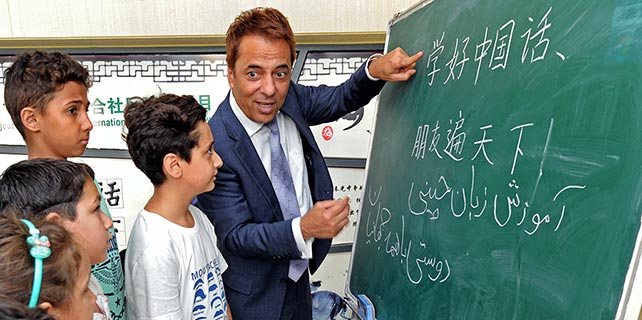Prodi calls on world leaders to grasp burgeoning opportunities
Romano Prodi, a former two-time prime minister of Italy, said the Belt and Road Initiative will change the lives of half the global population in the coming decades.
He urged global leaders to grasp the opportunities the initiative will offer when they meet at the Belt and Road Forum for International Cooperation in Beijing at the weekend.
|
|
"This is a very important meeting, which will signal a green light from Beijing that the countries that have agreed to participate in the initiative can get down to business," he said, speaking in an exclusive interview with China Daily in Rome.
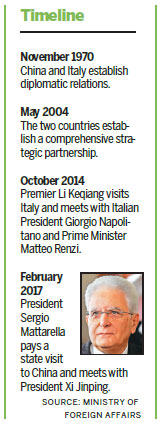
Up to 30 world leaders will attend the forum to discuss the development of the initiative, which Prodi called "a century-long project" that will improve connectivity between Asia, Europe and Africa.
Prodi, who was president of the European Commission from 1999 to 2004, said the thing that has impressed him most is that the initiative will change the lives and fates of people in less-developed countries, especially in Asia.
He said the first and most visible consequence of implementing the initiative will be that many countries in Central Asia will cooperate with China in infrastructure development.
"This will not just be about constructing roads and railways, but also about changing the daily lives of people in those countries. I expect this to be a new page for those countries," he said.
Now, after three years of publicity and promotion, European countries are "competing to seek synergies" with the Belt and Road Initiative, according to Prodi.
Nevertheless, he warned against complacency: "This will be a difficult project, which will last many, many decades. The most important thing is to gain greater political will, endorsement and support from countries along the routes."
Progress and confidence
However, he is confident that progress will be made, because the initiative has been widely accepted in recent years as a result of promotion by the Chinese government, businesspeople and think tanks.
"After three years of preparation, the Beijing forum will be seen as a green light for larger-scale cooperation," said the 77-year-old, who has played his own part in promoting the initiative.
Prodi, who lectures at the University of Tianjin and at Peking University in Beijing, regularly shuttles between China and Italy. After returning to Italy after a week teaching in Beijing, he met with Paolo Gentiloni before the Italian prime minister headed to China to attend the forum.
Although he declined to reveal details of their discussion, the former politician said Gentiloni, who was communications minister in Prodi's cabinet from 2006 to 2008, is a firm supporter of the Belt and Road Initiative.
When President Xi Jinping visited Central and Southeast Asia in September and October 2013, he raised the idea of jointly building the Silk Road Economic Belt and the 21st Century Maritime Silk Road, known together as the Belt and Road Initiative.
Prodi said the project is a combination of vision and implementation by land and by sea: "As a European and an Italian, I would say the bulk of goods will still flow via sea routes, and the role of the Mediterranean region is vital in implementing the initiative."
He added that the initiative originated from the concept of the ancient Silk Road, whose European terminus was Italy, while the famous traveler Marco Polo, who brought China to Europe more than 700 years ago, came from Venice.
"So, I propose the next summit should be organized in Venice, which has a symbolic meaning in that President Xi's initiative links the past with the future," he said.







